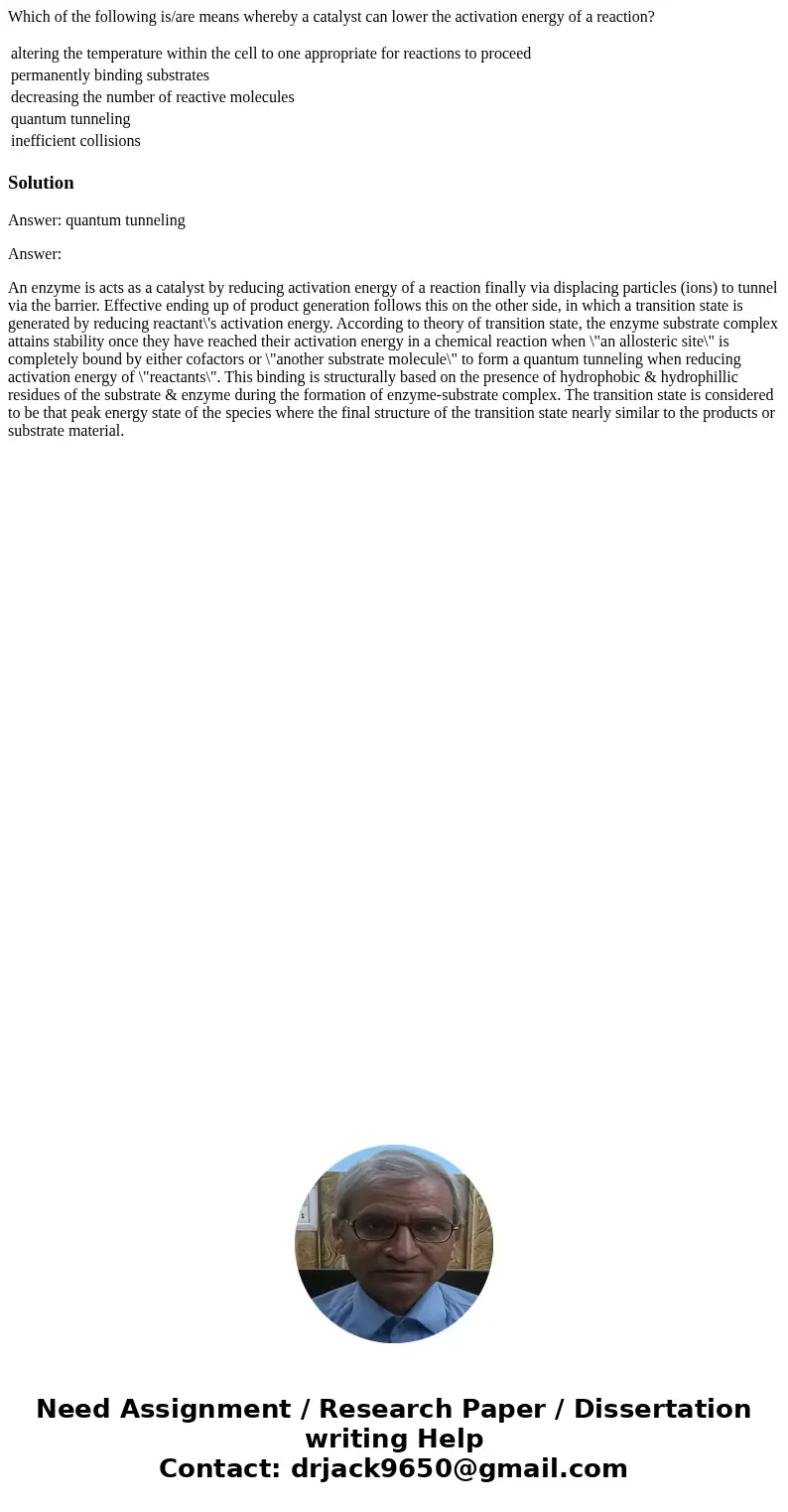Which of the following isare means whereby a catalyst can lo
Which of the following is/are means whereby a catalyst can lower the activation energy of a reaction?
| altering the temperature within the cell to one appropriate for reactions to proceed |
| permanently binding substrates |
| decreasing the number of reactive molecules |
| quantum tunneling |
| inefficient collisions |
Solution
Answer: quantum tunneling
Answer:
An enzyme is acts as a catalyst by reducing activation energy of a reaction finally via displacing particles (ions) to tunnel via the barrier. Effective ending up of product generation follows this on the other side, in which a transition state is generated by reducing reactant\'s activation energy. According to theory of transition state, the enzyme substrate complex attains stability once they have reached their activation energy in a chemical reaction when \"an allosteric site\" is completely bound by either cofactors or \"another substrate molecule\" to form a quantum tunneling when reducing activation energy of \"reactants\". This binding is structurally based on the presence of hydrophobic & hydrophillic residues of the substrate & enzyme during the formation of enzyme-substrate complex. The transition state is considered to be that peak energy state of the species where the final structure of the transition state nearly similar to the products or substrate material.

 Homework Sourse
Homework Sourse